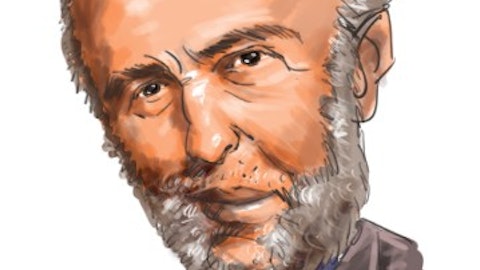Citigroup Inc (NYSE:C) reported first-quarter earnings earlier this week and it looks like the mega-bank has made some great strides from its near collapse just a few years ago. Revenue was up, costs were down, and it didn’t prop up its earnings with massive releases of loan reserves (compared to last year). Citi released $652 million from its loan loss reserve, down from $1.2 billion last year, while net income rose 17%.

The previous CEO, Vikram Pandit, had announced that Citigroup Inc (NYSE:C) was splitting itself into two companies: CitiCorp (Good Citi), and CitiHoldings (Bad Citi). CitiCorp is the surviving core assets, while Citigroup Inc (NYSE:C)winds down and sells assets of CitiHoldings. This past quarter, Citi cut 11,000 jobs and has been pulling out of non-profitable assets. CitiHoldings’ revenue was $1.4 billion less in than in the fourth quarter, but CitiCorp increased revenue by more than $2 billion, leading Citigroup Inc (NYSE:C) to beat earnings by $0.12 per share.
Valuation
Let’s put Citi into context of its too big to fail bank peers. The chart below shows that there are two clear leaders, and two still living with a stigma that came out of the recession, and it is reflected in their metrics below.

Wells Fargo (NYSE:WFC) has been backed by Buffett, and is considered the soundest money-centered mega-bank. Wells Fargo was the conservatively run bank which swallowed up Wachovia during the financial crisis, and doubled its footprint in the U.S. at the same time.
Wells Fargo has the highest operating margin and second highest dividend of any of the major banks, and continues to be purchased by Berkshire Hathaway Inc (NYSE:BRK.A). Wells Fargo operated conservatively and denied revenue to sub prime borrowers during the early 2000s, and is now capitalizing on other large banks’ resistance to take on more risk. Now, Wells Fargo accounts for more than 65% of mortgage applications. No wonder its profit was up 22% from last year.
Citi still looks undervalued compared to its peers, but is uniquely positioned as a global bank more than any of its big four peers. Half of Citi’s revenue comes from the U.S. and the other half comes from international markets, giving it a unique position to capitalize when the European debt crisis is resolved.
Compared to its peers, Citi barely pays a dividend, which yields 0.1%, but it did get approved a repurchase plan worth $1.2 billion last month. This repurchase is basically covering the shares that are given out as executive compensation. Looking forward, we should see the dividend rise at Citi after CitiHoldings becomes a more appropriate portion of the bank’s profit.
The only stock that is behind Citi is Bank of America Corp (NYSE:BAC). Bank of America Corp (NYSE:BAC) seems to still have a hangover from its Countrywide merger half a decade ago. Countrywide has cost Bank of America over $40 billion in legal fees, and real estate losses have continued to mount over the years. All said and done, Countrywide cost $44 billion to the bank.
In a comedic turn of events, Bank of America must not have read all of the fine print when they purchased the sub-prime king. Looking at Bank of America’s gross profit margin, it continues to be depressed due to legal fees and the threat of litigation. Bank of America’s brand name has been tarnished, and they are already seeing other lenders continue to gobble up market share in the mortgage origination market. The task for Bank of America will be uphill going forward.
Bottom line
Wells Fargo was able to take advantage of the other big bank’s hangovers and steal their mortgage origination business, while they were reducing risk. Citigroup Inc (NYSE:C)’s balance sheet may not have shrunk by over $400 billion since its high, but it reduced a lot of fat and is a much leaner company.
Citi comes with the upside of being a truly global bank, while still having a depressed valuation without the legal trouble still facing Bank of America. If you are looking for exposure to the large banks, Wells Fargo will let you sleep well at night, but Citi can potentially offer much more upside.
Wes Patoka has no position in any stocks mentioned. The Motley Fool recommends Wells Fargo. The Motley Fool owns shares of Bank of America, Citigroup Inc , and Wells Fargo.




